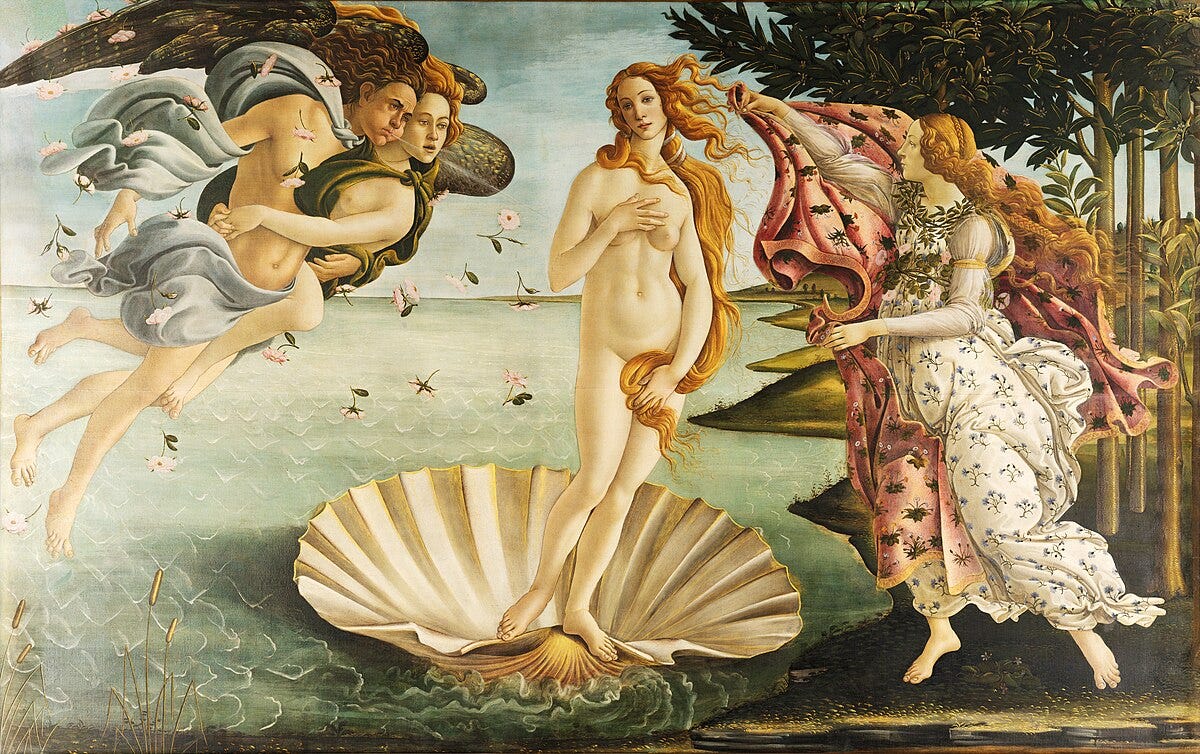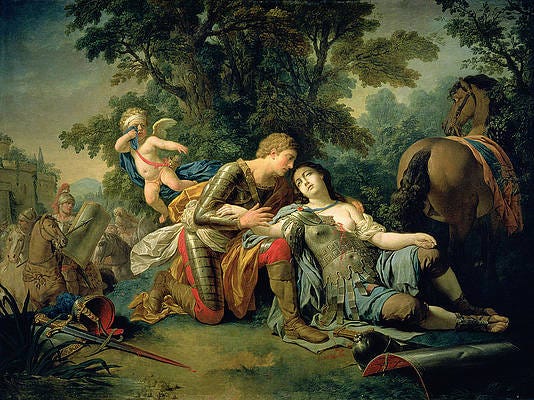Gravity's Rainbow - Part 2 - Chapter 1: The Birth of Venus
Analysis of Gravity's Rainbow, Part 2 - Chapter 1: The Great Octopus Abduction
Along the beach is a casino named after famed Nazi war criminal, Hermann Goering — a place of chance where the house always wins and where, apparently, genocidal maniacs can rake in those profits. Or at least be held in high regard.
This is where Tyrone Slothrop (along with Tantivy Mucker-Maffick — his deskmate at ACHTUNG — and Teddy Bloat — the known White Visitation member who both lives with Pirate and who spied on Slothrop’s desk in Chapter 3) has been allowed a furlough. As in Chapter 1 of Beyond the Zero, we first see them all arising from a slumber in the same room, but instead of the random chaos ensuing as drunken bodies fall from the rafters, the scene appears almost too set up. It is slow moving, stoic, with everyone but Slothrop “really pushing the forced enthusiasm” (181) and theatricality. Their sentences seem to both patronize and flatter him, though Slothrop — despite appearing quite the idiot at times — has a vast intelligence and perception that allows him to pick up on these things quickly and easily. Not to mention that they’re not very good at what they’re doing; it is pretty obvious, especially as they delve into a song praising the American as a sexual Don Juan whereas the Englishman is, apparently, the timid friend, unwilling to make any first moves.
Things then transpire like a beach vacation film: women calling up to a balcony, asking the men to come down while holding baskets full of food and wine straight out of a still life painting, scents and mists of the male toilette flying through the air as if they were in a cartoon. For a second, Slothrop seems to even be falling for this charm — believing that all of this is happening naturally.
Slothrop’s naive Americanness prevails as he steps out of the bathroom in the most offensively designed Hawaiian shirt — one that should turn off even the most desperate of potential lovers. He embodies the American that all Europeans would despise, and despite this, the Frenchwomen fawn over him, “stroking the shirt, nibbling at its collar-points, cooing in French” (184). Of course it works on them, despite Bloat and Mucker-Maffick’s pleas to change; anything would work because the girls’ roles have been set.
It is not just the characters who have been set up. It is the scene, as well. As they walk along the beach, paranoia creeping slowly into Slothrop’s mind because clearly things are just a bit too perfect after the nonstop bombings of London, everything before him calls back to his earlier life memories, as if the “black rocks that poke up along the Cap” and the “twin slivers of a boat’s sails” and whatever else he is seeing remind him of his time as a child in Cape Cod — his time smelling “drying seaweed [and] summer-old cooking oil” (185). Everything feels perfect — just right. And even the non-nostalgic present is glorious with the fine wines and breads: “For a moment you can let the world go” (185). Whatever paranoia might have been creeping in can lay to rest now, for a little.
But then, borne out of the sea like Aphrodite, rises Katje Borgesius, staring directly at Slothrop who smiles back, never having seen her before despite her knowing look toward him. The entire group stares at her across the beach, appearing as the Greek goddess, stunning them all — though as the water begins to stir, her role turns from the goddess to a damsel in distress. Calling back to the motif of monster movies a la the epigraph of Part 2, Grigori himself — the octopus captured, trained, and conditioned by Pointsman via recordings of Katje played over the television in the White Visitation — rises out of the waters as well, wrapping its tentacles around her in attempt of an abduction.
The rest plays out as a typical monster movie with the hero and the damsel, playing into the American Citizen’s conditioned desire to be a savior. Again, things are specifically set up so Slothrop will feel as if he is the only one who could have saved her — so he can attain the status he believes he is destined for. Things once more become a bit too obvious for him as Bloat throws him a crab that appeared from what seems like thin air and insists that he does not kill the octopus (because where else is Pointsman going to get another giant conditioned cephalopod; these things aren’t worth wasting on just one project). With just a flick of the wrist, throwing the crab “like a discus” (187), the octopus chases it out to sea, leaving Katje safe and Slothrop as the hero of the day.
Slothrop cannot help but noticing the continued coincidences and asks himself, “What th’ fuck’s going on?” (187): the French girls who initially called them down to the beach are speaking to Katje in a language currently unplaceable, as if they too are in on the plot; looks are given between the girls, him, and Katje, like they are all keeping an eye on each other or are ensuring that things are staying at least slightly hidden; questions are deflected if their answer may reveal too much — paranoia filters in. And with Katje’s final line, “‘Perhaps, after all, we were meant to meet. . . .’” (189), Slothrop knows that even though the idea of destiny is sought to be evoked, their meeting was anything but fortuitous — it was planned, set up in the exact way that would lead him to this spot, and that there is nothing he could, or would even want, to do about it.
Now that we have all the main characters and motives set up from Part 1, Part 2 will be a little bit more straightforward. So, to all new readers of Gravity’s Rainbow, this Part should give you a nice breather (though of course it has its moments as well).
Next week we will be covering Part 2 - Chapter 2 (but it is slightly on the longer side so if I need to split it up I will, but I think one week should suffice). Thanks for tuning in as usual!







OK. Here's where my brain breaks. The woman is named Ghislaine, the date that Slothrop pulls aside to check if he's being paranoid. Obviously, were this novel written today it would be an unsubtle reference to Ghislaine Maxwell. Moreover in the sense that Katje is being trafficked by Them for Slothrop's sexual use (honeypot scheme??) this Ghislaine is complicit in sex trafficking. So lucky guess/cooincidence? By the time the novel came out, Ghislaine Maxwell had been born, so Pynchon definitely could have known that Robert Maxwell had a daughter named Ghislaine. Robert Maxwell would have been just the type of person that the Noided Pynchon would have been keeping tabs on. Am I being crazy? Is the novel making me crazy?